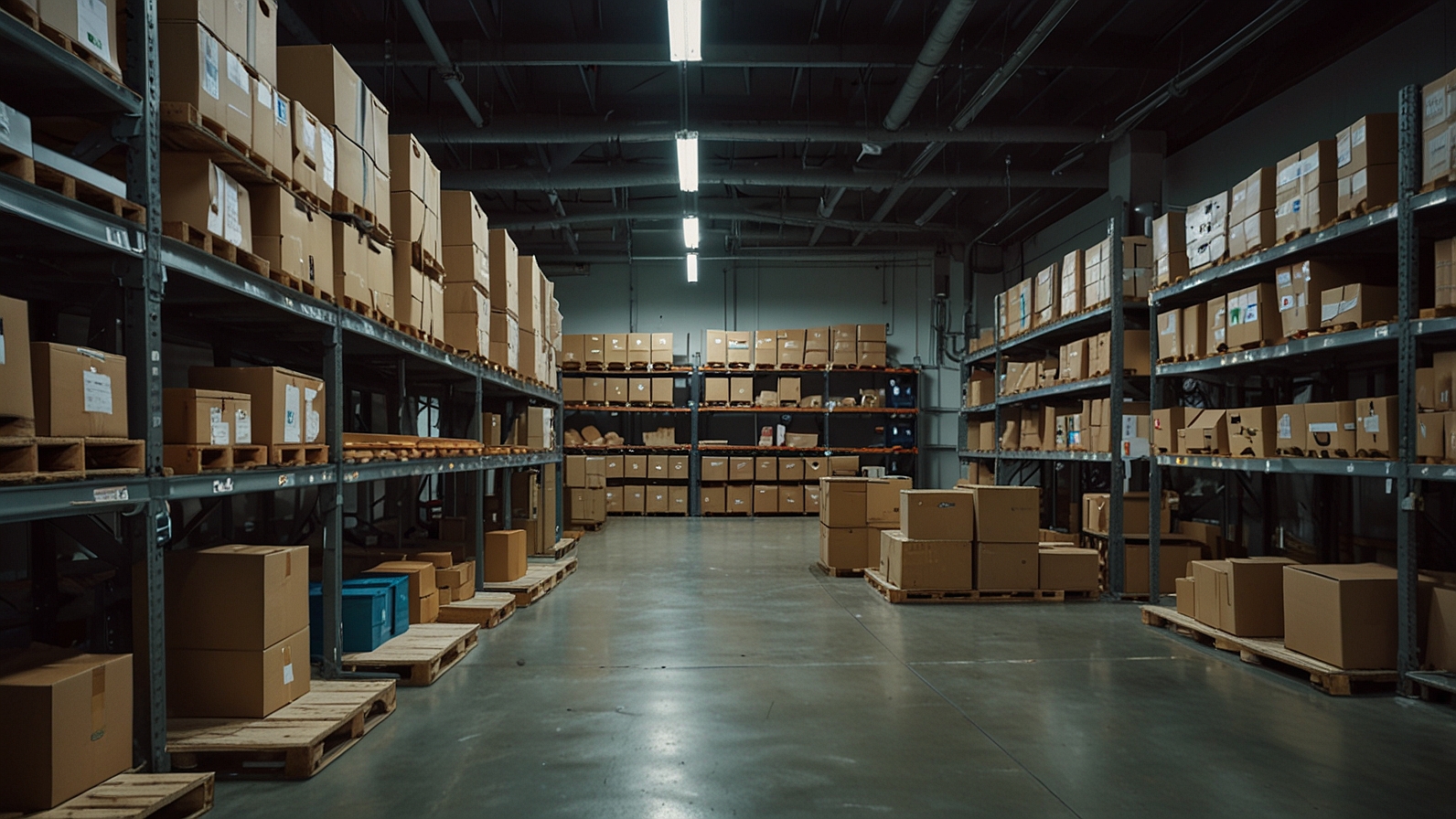Ever run to a big-box store for a specific pipe fitting, only to find they have every size except the one you need? Or spent hours driving between different specialty shops for electrical components, plumbing parts, and general hardware for a single job?
If you’re a contractor, maintenance pro, or facility manager, you know that time is money. This frustration is exactly why PLG supplies exist. They are the behind-the-scenes heroes that keep projects moving smoothly. But what exactly are they, and how can they make your life easier? Let’s dive in.
Think of a PLG supplier like a well-organized, professional-grade kitchen for a chef. Instead of running to separate stores for meat, produce, and spices, a chef has everything they need, in quality they trust, right at their fingertips.
PLG is an acronym that stands for Plumbing, Lighting/Electrical, and General building supplies. A PLG supplier is a specialized wholesaler that combines all these categories under one roof. They are not typically open to the general public; their primary customers are trade professionals like you.
Their entire business model is built on service, selection, and speed, ensuring you can get virtually everything you need for a job from a single, reliable source.
While anyone could theoretically buy from them, PLG suppliers cater to a specific clientele that values efficiency and expertise. Their main customers include:
- Contractors: General contractors, plumbers, and electricians are the bread and butter of PLG businesses. They need bulk materials, trade-specific brands, and reliable delivery to job sites.
- Maintenance Teams: Whether for a large factory, an apartment complex, or a school district, maintenance crews need a wide array of parts to handle everything from a leaky faucet to a broken light fixture. PLG suppliers are their go-to for keeping inventory stocked.
- Facility Managers: These professionals are responsible for the long-term health of a building. They depend on PLG partners for everything from planned renovation materials to emergency repair items.
- Property Managers: Similar to facility managers, they need a trusted source for handling repairs and upkeep across multiple properties efficiently.
Walking into a PLG supply house is like a kid walking into a candy store—if that kid got excited about high-quality conduit and perfect P-traps. The inventory is vast, but it can be broken down into a few key categories.
Plumbing Supplies:
This is the “P” in PLG. You’ll find everything from common PVC and copper piping to specialized PEX tubing. They stock a huge range of fittings, valves, water heaters, sinks, toilets, faucets, and the tools needed to install them all.
Electrical & Lighting Supplies:
This is the “L”. This section covers wiring (romex, conduit, wire nuts), circuit breakers, panels, transformers, and a massive selection of lighting. Think commercial-grade LED fixtures, emergency lighting, lamps, bulbs, and the components for complex control systems.
General Supplies & Tools:
This is the “G”. This is the catch-all category that rounds out their offering. It includes:
- Hand and Power Tools: From screwdrivers and wrenches to professional-grade drills, saws, and pneumatics from brands like Milwaukee, DeWalt, and Makita.
- Consumables: adhesives, abrasives (sandpaper, grinding discs), tapes, lubricants, and sealants.
- Safety Equipment: hard hats, safety glasses, gloves, high-visibility vests, and hearing protection.
- HVAC Components: filters, thermostats, ductwork, and other essential parts.
This is a common question. While a home improvement store is great for DIYers and small, one-off purchases, PLG suppliers are built for professionals. Here’s how they compare:
| Feature | Big-Box Retail Store | PLG Supply House |
|---|---|---|
| Target Customer | DIY Homeowner, General Public | Trade Professionals (Contractors, Maintenance) |
| Product Depth | Wide but shallow. Basics only. | Deep and specialized. Niche items and pro brands. |
| Product Quality | Consumer-grade, often with proprietary brands. | Commercial and industrial-grade from trusted brands. |
| Pricing | Standard retail pricing. | Trade pricing and volume discounts. |
| Expertise | General product knowledge. | In-depth technical support from experienced staff. |
| Service | Self-service, checkout lines. | Will-call counters, job-site delivery, order staging. |
As you can see, the value of a PLG supplier isn’t just in the products they sell, but in the entire service ecosystem they provide.
Not all PLG supplies vendors are created equal. Choosing the right one is a strategic business decision. Here’s what to look for:
- Reputation & Reviews: Ask other pros in your network who they use and why. Online reviews can also be telling.
- Brand Availability: Do they carry the specific brands you know and trust, like Kohler, Siemens, Viega, or Emerson?
- Inventory Breadth: Can you get 80% of your shopping list from them? The higher this number, the more time you save.
- Location & Logistics: How close are they to your common job sites? What are their delivery options and fees? Fast, reliable delivery is a massive time-saver.
- Digital Tools: In today’s world, a user-friendly website for checking inventory and placing orders online is a huge advantage. Do they offer e-commerce solutions?
- The People: Ultimately, this is a relationship business. Are the counter staff knowledgeable? Do they recognize you and understand your needs? Good service can solve problems before they even happen.
- Build a Relationship: Get to know your sales rep and the counter staff. They can alert you to new products, upcoming sales, and supply chain issues.
- Leverage Their Expertise: Stumped on a technical problem? Don’t guess. Bring it to them. Their product knowledge is a free resource.
- Consolidate Orders: To maximize efficiency, try to group your purchases into fewer, larger orders to minimize trips and qualify for better delivery terms.
- Ask About Programs: Many suppliers offer loyalty programs, extended payment terms (net-30), or other perks for established trade customers.
- Provide Feedback: If a product was great (or terrible), tell them. If you need them to stock something new, ask. They want to serve your business better.
In the end, PLG supplies represent more than just pipes, wires, and tools. They represent a streamlined, professional approach to sourcing materials. By partnering with a strong PLG supplier, you’re not just buying parts—you’re buying back your most valuable resource: time. You’re gaining a partner invested in helping you complete jobs faster, more efficiently, and to a higher standard.
So, what’s your take? Do you have a go-to PLG supplier that you couldn’t live without?
Can anyone walk in and buy from a PLG supply house?
While policies vary, most true PLG suppliers are “trade-only,” meaning they require proof of being a business (e.g., a tax ID number) to open an account and receive trade pricing. Some may sell to the public but at a higher retail price.
Are PLG supplies more expensive than home improvement stores?
It’s a common misconception that they are always more expensive. While the upfront sticker price on an individual item might sometimes be higher due to its professional quality, the trade pricing offered to account holders is often very competitive, especially on bulk purchases.
What’s the difference between a PLG supplier and an industrial supply company?
There’s overlap, but industrial suppliers often focus more heavily on MRO (Maintenance, Repair, and Operations) supplies for factories and plants, like heavy-duty tools, machinery parts, and industrial safety gear. PLG suppliers have a stronger focus on the construction trades (plumbing/electrical) but increasingly carry both.
Do PLG suppliers offer delivery?
Absolutely. Reliable and often daily delivery to job sites is a cornerstone service for most PLG suppliers, saving contractors invaluable time and fuel.
How do I set up an account?
Usually, you just need to provide your business information, including your business name, address, and tax ID number. The process is typically straightforward, and the sales team can guide you through it.
Can I return items if I buy too much?
Most suppliers have a return policy for unused, non-special-order items, but it’s always best to check the specific terms before purchasing, especially on large orders.
Do they sell online?
The industry is rapidly digitizing. Most major PLG suppliers now have e-commerce websites where account holders can check real-time inventory, place orders, and track deliveries.

